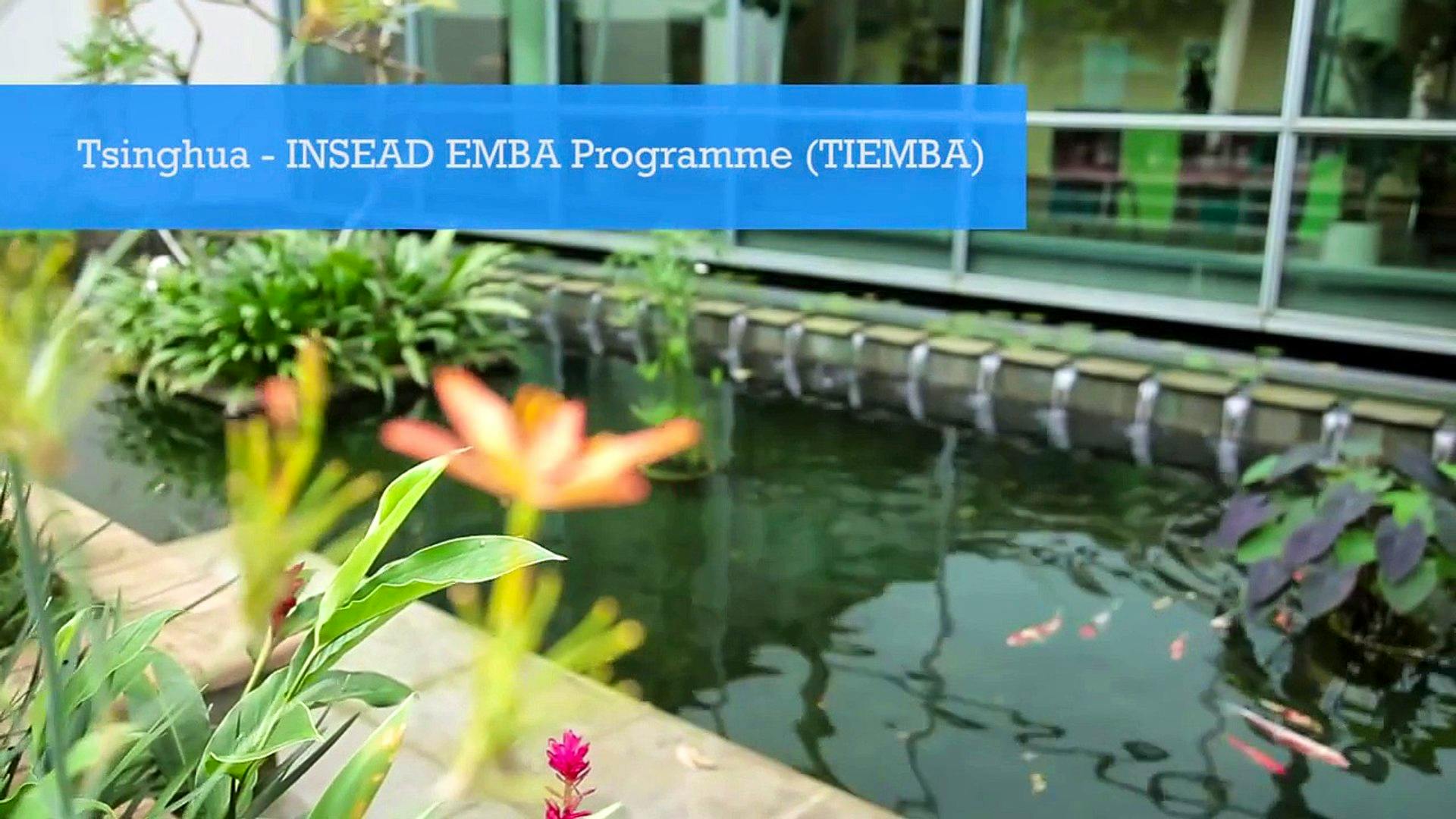Driving sustainable change has always been Natalie Chan’s passion. She finally fulfilled this dream when she founded PIE Strategy Limited in late 2016, after 18 years in the corporate world.
While managing the consultancy service company, she saw the need to step up as a leader in the organisation and connect sustainability considerations with business motivations. This motivated her to enroll in the Tsinghua-INSEAD Executive MBA (TIEMBA) program.
Find out how TIEMBA empowered her to become a more effective leader and her favourite experience during her study!
Biography
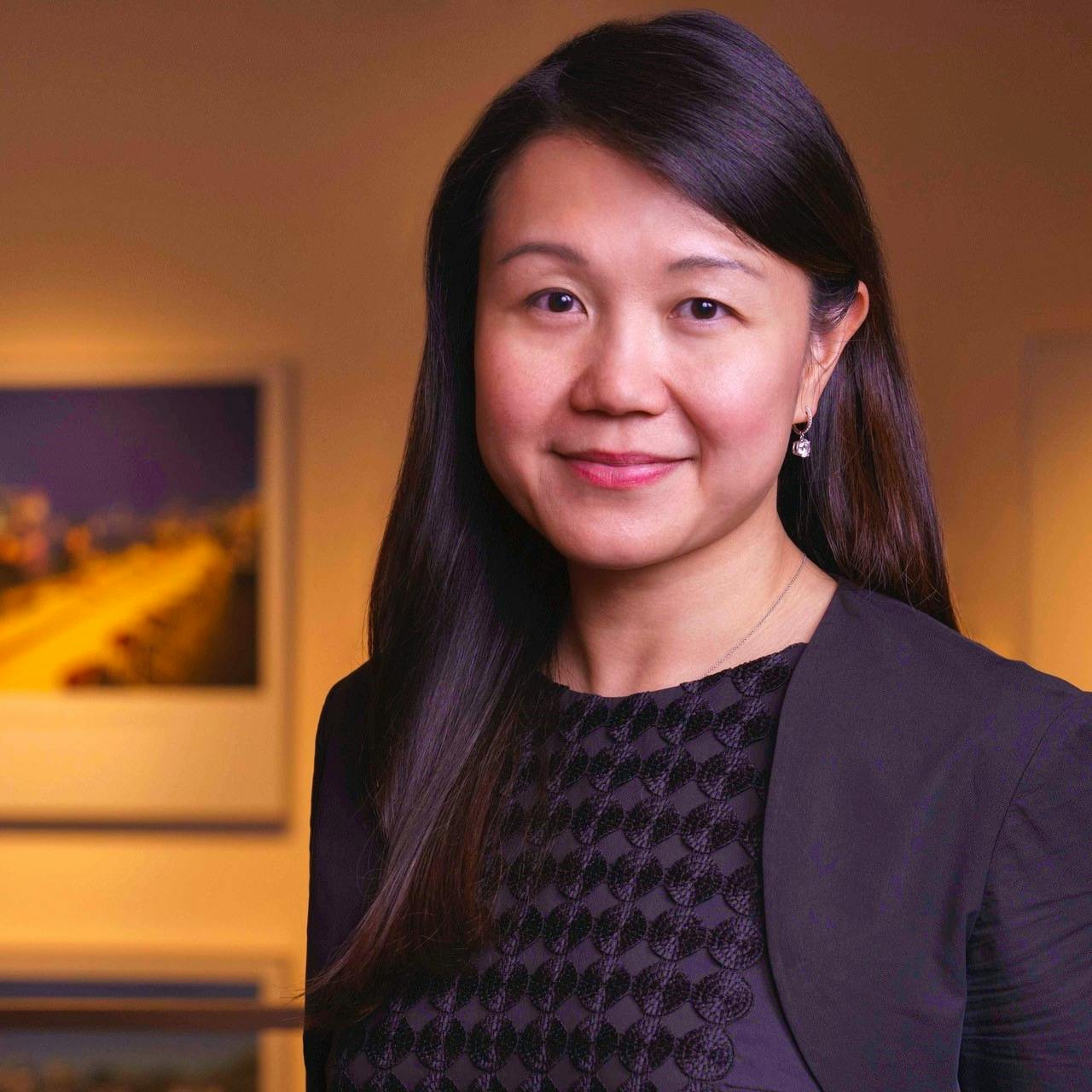
Age: 43
Hometown: Hong Kong
Family Members: Husband
Fun fact about yourself: I love scuba diving because of the beauty and tranquility it offers. Even if I see something exciting underwater, I can’t scream or talk about it because I need to bite on my regulator to keep breathing – and hold the excitement until the end of the dive. Interestingly, this prolongs the excitement and lets it run deeper and higher.
Undergraduate school and degree:
Master of Social Science, Corporate Environmental Governance, The University of Hong Kong, 2010 (Distinction on Dissertation: Social Enterprise – Opportunities & Challenges as Sustainable Business Model in Asia)
Bachelor of Arts (Honours), Major in English, Minor in Journalism & Communications, The Chinese University of Hong Kong, January 1998. Second Class Upper Division. Selected as representative of 97/98 graduates.
Where are you currently working?
I’m the Founder and Managing Director of PIE Strategy Limited, a consultancy specialising in sustainability and creating shared value.
Extracurricular activities, community work and leadership roles:
- Advisory Board Member, London-based Ethical Corporation
- Energy Advisory Committee Member, Hong Kong Government
- Non-Executive Director, Hong Kong Institute of Social Impact Analysts
- Advisory Committee Member, Social Enterprise Business Centre of Hong Kong Council of Social Service
- Mentors of various social entrepreneurship programmes in Hong Kong
Which academic or extracurricular achievement are you most proud of during your time at INSEAD?
My reflection paper for Strategic Talent Management received the top score in the class. I was (of course) happy with the score. Most importantly, it was an endorsement to me as I applied what I had learned and reflected on from the Organisational Behaviour and the Strategic Talent Management courses in the reflection paper. Talent and team management is a topic of such gravity to my firm and to me personally because it involves more than financial figures, plants, and equipment, but people.
Getting a passing score in Corporate Finance is an achievement that made me secretly proud of myself. Just hearing the term “Corporate Finance” was enough to intimidate me, make me feel ignorant and want to run away. The lectures and after-class tutorials by classmates from the financial field helped me appreciate and get acquainted with the subject. The term “Corporate Finance” still makes me feel uneasy, but I now have just enough confidence not to run away.
What achievement are you most proud of in your professional career?
Driving sustainable change has been my passion and my profession. Founding a boutique sustainability consultancy firm, PIE Strategy Limited, in late 2016 after 18 years in the corporate world was a milestone in my professional career. We also worked with strategic partners to influence wider systemic change in society. PIE consults for Our Hong Kong Foundation, the top public policy think tank in Hong Kong, in managing its Business for Social Good (BSG) platform for engaging businesses as a force for good.

PIE also provides management oversight and programme curation for Civic Exchange, using evidence-based research to advise public policy design for a better Hong Kong. Civic Exchange is a public policy think tank with 18 years’ history and has been consistently ranked among the top 50 environmental think tanks in the world.
PIE is a certified B Corporation® (an internationally recognised standard for impact business) and was awarded as one of the 2018 Best For the World Honourees.
The past two years have been hard work, but for the purpose we serve and for the culture and testimony we want to build at our company, I’m enjoying every moment of it.
Who was your favourite EMBA professor?
I have two! They were Professor Javier Gimeno of the Strategy course because he delivered the lectures with such passion and substance; and Professor Charles Galunic of Organisational Behaviour because, in his gentle yet forceful way, he made me realise the weight of being a leader.
From making the right hiring decision and building high-performance teams to having the right organisational design, performance incentives and culture of the company, there is no one else to blame but myself as the leader of a company.
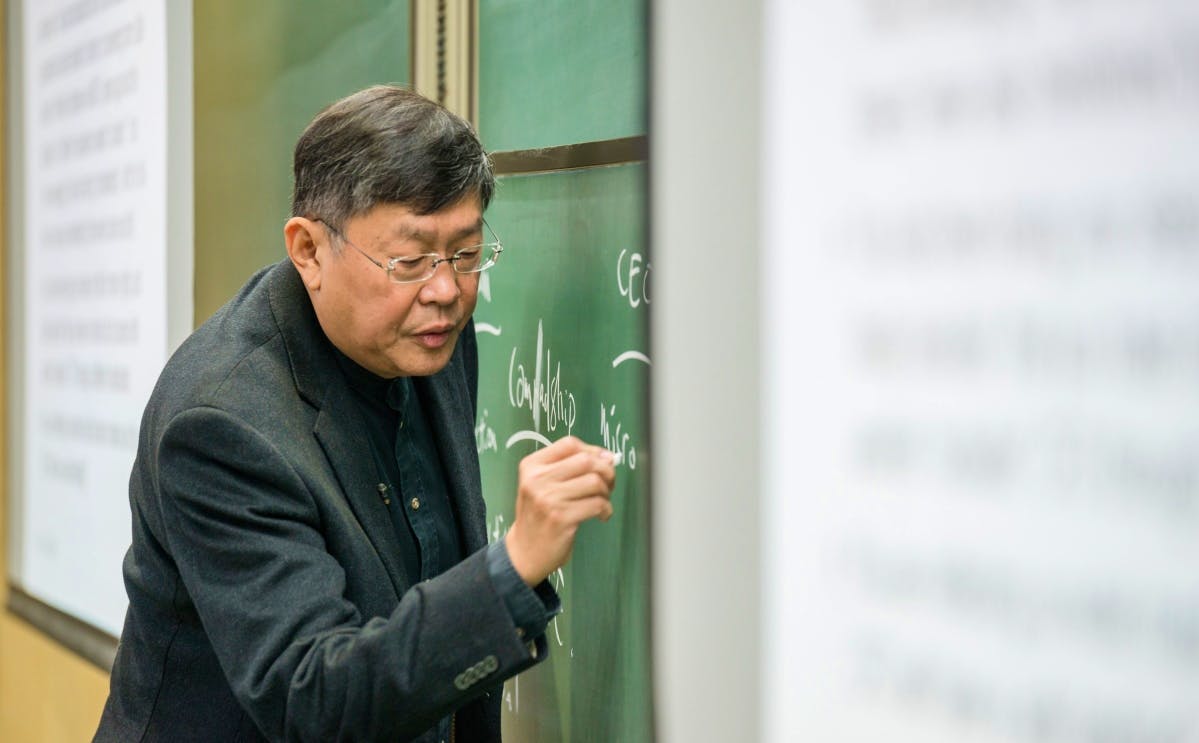
What was your favourite EMBA course and what was the biggest insight you gained about business from it?
This is a tough question! So far, every module of the EMBA programme gave me inspiration and takeaways which I could apply in my start-up business right away, and witness the positive impact unraveling over time. The Strategy course is one of my favourites. Going beyond the mission of being a “purpose with a company” (not just a company with a purpose), the discussions in the Strategy course nudged me to think hard about the strategy that we should adopt, what we want to focus on achieving, and what we are willing to trade off. This became the basis for a fruitful discussion at our company’s team retreat, and the yardstick for decision-making since then.
Why did you choose the Tsinghua-INSEAD Executive MBA?
I believed the Tsinghua-INSEAD EMBA education would empower me with the knowledge, skills and network to be a more effective leader. The EMBA programme equipped me with the understanding and the language to better connect sustainability considerations with business motivations, enabling me to be more effective in engaging businesses to deliver sustainable change.
What did you enjoy most about business school in general?
I treasure most the opportunity to learn not only from the distinguished faculty members of INSEAD and fellow classmates of diverse backgrounds. The feeling of being a sponge to soak up the knowledge flowing through the lectures and readings was exhilarating!
What is the biggest lesson you gained during your EMBA, and how did you apply it at work?
The TIEMBA programme helped me gain a deeper understanding of the gravity of leadership from different perspectives. Leadership is not defined by power or a business title, but by the attitude, behaviour, and competence of a person. It requires knowledge and skills, along with the willingness and thoughtfulness in making choices, and putting this knowledge and skills into practice in a consistent manner.
After the Organisational Behaviour class, I bid farewell to a member of our team who wasn’t the right fit for the kind of culture and teamwork we aspire to build. There were many takeaways from our discussion of the “Tragedy of the Everest” at the OB class, one of which is a leader’s responsibility to not lose sight of the big picture and thus putting the team and company at risk. Seeing how the team’s performance and collaboration was subsequently enhanced in the past eight months affirms me that it was the right decision – a difficult firing decision that I had avoided for quite some time and made the team suffer.
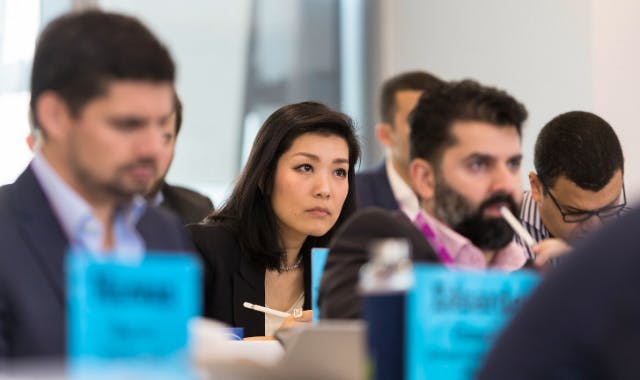
The Strategy class made me realise that, although I take pride in having a clear mission and vision for PIE and building a team behind it, I did not have a proper strategy to deliberate our passion and to lead us towards our vision. Despite the overwhelming workload – which is quite typical for a start-up business – we made time for a team retreat and made crafting our company’s strategy for the next five years the focus of the retreat. It provided clarity on what we want to focus on achieving and what we consciously decided to trade off, providing the yardsticks for decision-making for everyone in the team.
The Strategic Talent Management class reaffirmed some of my convictions but also forced me to confront myself on some of my (wrong) assumptions. The statement – “People are not the most important asset to a company. Only the right people are the most important asset.” – has stuck in my mind since the class. This statement is so simple, yet so profound and liberating. It reset my mindset, giving me the latitude to more rationally consider an employee’s fit for the team, whether an employee’s ABC (Attitude, Behaviour, and Capability) makes him/her a good asset for the company, an asset that can be further developed, or a toxic asset that would only be right to dispose.
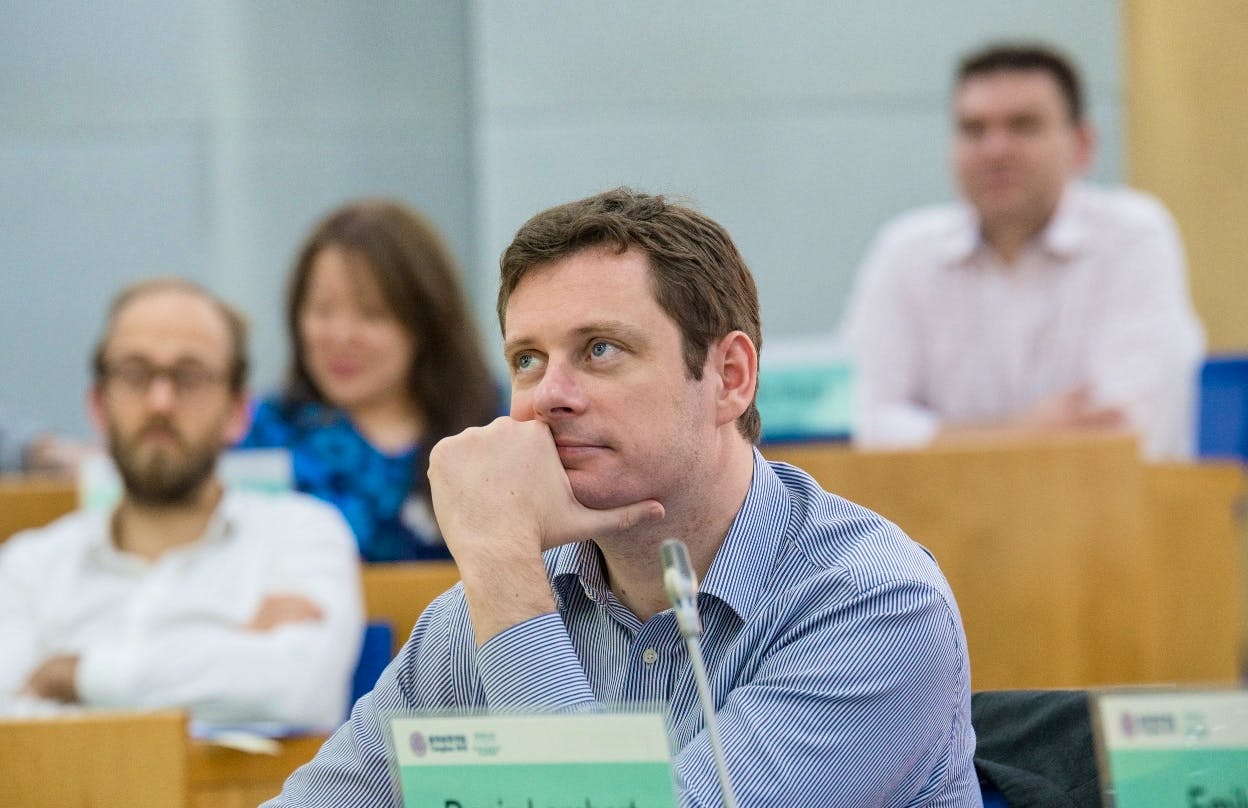
I changed how we approach recruitment and place talent acquisition as the utmost important step in building a high-performing team and the company culture. I also got the team to articulate their personal values and agree on what values we want to behold at the company. We also reaffirmed that the incentive scheme we have is conducive towards the performance behaviour and culture we want to see.
These are some of the perspectives I gained for being a leader. The knowledge we gained on financial, operational process management, etc. is also a crucial ingredient for a competent leader – I now at least have the awareness of my weaknesses and can plan on how to strategically overcome them by having the right talents in the team to complement these weaknesses, and/or building up my competence in these areas.
Give us a story during your time as an Executive MBA participant on how you were able to juggle work, family, and education?
When we had our module in Abu Dhabi in late January, I took advantage of the five-hour time zone difference. I scheduled the necessary calls with clients and the team in the early morning before going to class. I spent the evenings with a balance of going out for good food and a good time with classmates, and hiding in the hotel room to catch up on work and study. The module ended right before Chinese New Year. My husband joined me in Abu Dhabi on the last day of the module and we flew to Oman for a week-long holiday exploring this beautiful country!
What advice would you give to a prospective student looking to enter the TIEMBA?
It’s hard work, but so much to learn, so much to enjoy, so much to remember.
What is the biggest myth about going back to school?
You need to wait for the “right” time when you are less busy so as to devote more time to study.
Many of my friends (including my husband!) said I was crazy to take on such a big commitment at this early stage of starting my own business. I thought about taking an EMBA and procrastinated on the decision for quite some years. It never got “less busy” and I probably ended up picking the “busiest” time for me to do an EMBA.
However, all the knowledge I learned and the inspirations I got from the lectures and the readings have helped me continue to improve and iterate our strategy, and practice as I continue to build the team and the business of my start-up company. And there is no guarantee that things will get less busy later on!
What was your biggest regret in business school?
I must admit that I wasn’t able to read in detail all the assigned readings. How I wish that we had more hours in a day and more days in a week! Still, they are on my to-do list. I commit to myself that, after finishing all the EMBA modules, I will do one reading that I missed each month, and someday I will get to finish all the readings.
Which TIEMBA classmate do you most admire?
Osman Belal is a classmate I truly admire and respect. He is a man of integrity, helpful and humble, and very good at what he does professionally. Osman has a financial background. We often approach an issue from quite different perspectives, but always had a good discussion with great insights to take away. When I and some other classmates cried out for help on some financial classes, Osman was most helpful in giving us after-class “tutorials” in the evening, and he offered his support with such humility and respect.
“I knew I wanted to go to business school when…”
I saw the need for me to step up as a leader in the organisation, and the need to learn the language to better connect sustainability considerations with business motivations.
What is your ultimate long-term professional goal?
Seeing PIE Strategy grow in business and impact, and seeing my team grow professionally and personally. Also, it is my goal and my dream to be able to lead PIE into new areas that we are passionate about and still adhere to our purpose for driving sustainable change in the society. I dream of the day that I can take the back seat, and let the team run the company and only call me in to help in areas they want me to.
In one sentence, how would you like your peers to remember you?
A leader with passion and compassion, who reminded everyone in the class of the importance of connecting social and environmental sustainability with business success, because business exists in society and society is wrapped in the environment.
What are the top two items on your bucket list?
- Scuba diving in Galapagos
- Going to Serengeti National Park and Ngorongoro in Tanzania again, but this time with my husband and my team.
This interview was originally published on Poets&Quants Best & Brightest Executive MBAs
About the Tsinghua-INSEAD EMBA (TIEMBA) Program

The Tsinghua – INSEAD Executive MBA (TIEMBA) is a unique partnership between INSEAD, one of the world’s leading business schools, and Tsinghua University, one of China’s most prestigious universities.
Exchange perspectives with an elite, dynamic, culturally diverse class of experienced managers and be part of two powerful alumni networks. The TIEMBA is where life-changing leadership development meets the technical mastery of key business disciplines.
Learn more about TIEMBA here.
Read Related Articles:
Best Executive MBAs (EMBA) in China
My leadership skills have developed much more. – Diego Molina
Tsinghua-INSEAD Executive MBA: Taking A Leading Role In Industry 4.0
The TIEMBA experience was a life-changing milestone for me. – Helen Hai
Take Your Career Across Borders with the Truly Global Tsinghua-INSEAD Executive MBA (TIEMBA)
- 5 Tips to Get a Scholarship in China this 2025 - July 16, 2024
- Study MBBS in China: Admissions Guide for 2024! - June 12, 2024
- 8 Universities in China with the Best Online Chinese Programs for 2024 - June 2, 2024
